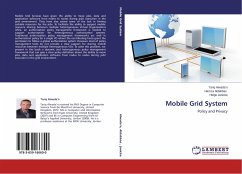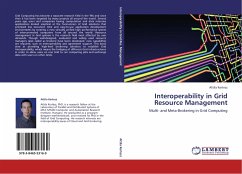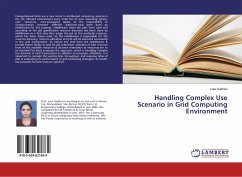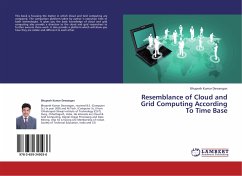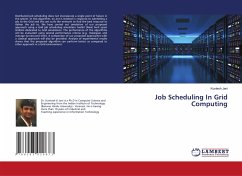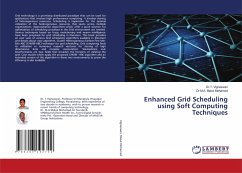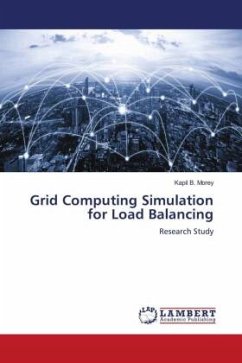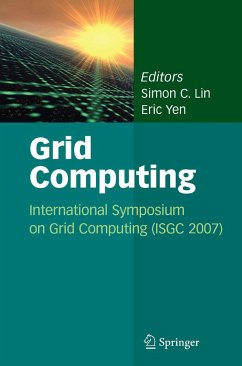
Virtualisation of Grid Resources and Prospects of the Measurement of Z Boson Production in Association with Jets at the
Versandkostenfrei!
Versandfertig in 6-10 Tagen
45,99 €
inkl. MwSt.

PAYBACK Punkte
23 °P sammeln!
At the Large Hadron Collider (LHC), a large number ofevents containing Z bosons will be available and thecalibration of the absolute jet energy scale withthese events becomes feasible for the first time.Such a calibration is important as the uncertainty onthis observable will be the dominant systematicaluncertainty on most LHC analyses. This workdemonstrates the feasibility of such a calibrationwithin the CMS experiment through a comparison of themomentum of a jet with the precisely reconstructedmomentum of a Z boson decaying into two muons. Thefour LHC experiments will produce about 15 petaby...
At the Large Hadron Collider (LHC), a large number of
events containing Z bosons will be available and the
calibration of the absolute jet energy scale with
these events becomes feasible for the first time.
Such a calibration is important as the uncertainty on
this observable will be the dominant systematical
uncertainty on most LHC analyses. This work
demonstrates the feasibility of such a calibration
within the CMS experiment through a comparison of the
momentum of a jet with the precisely reconstructed
momentum of a Z boson decaying into two muons. The
four LHC experiments will produce about 15 petabytes
of data annually which are stored and processed using
grid technologies. This, however, requires additional
services which do not fully load server machines at
smaller grid sites. The virtualisation of operating
systems enables the consolidation of different
services on a few server machines. Extending this
concept to batch queuing systems allows overcoming
intrinsic limitations of shared computing
infrastructures. Both, the consolidation of an
institute''s computing and grid infrastructure and a
prototype implementation of a virtualised batch
queuing systems are presented.
events containing Z bosons will be available and the
calibration of the absolute jet energy scale with
these events becomes feasible for the first time.
Such a calibration is important as the uncertainty on
this observable will be the dominant systematical
uncertainty on most LHC analyses. This work
demonstrates the feasibility of such a calibration
within the CMS experiment through a comparison of the
momentum of a jet with the precisely reconstructed
momentum of a Z boson decaying into two muons. The
four LHC experiments will produce about 15 petabytes
of data annually which are stored and processed using
grid technologies. This, however, requires additional
services which do not fully load server machines at
smaller grid sites. The virtualisation of operating
systems enables the consolidation of different
services on a few server machines. Extending this
concept to batch queuing systems allows overcoming
intrinsic limitations of shared computing
infrastructures. Both, the consolidation of an
institute''s computing and grid infrastructure and a
prototype implementation of a virtualised batch
queuing systems are presented.




